Browsing the cabinets in H Samuel, Maureen Rickards selected an 18-carat gold ‘forever’ diamond ring to mark her 25th wedding anniversary.
Quite what her husband Jeremy made of the ring we will never know – but it’s fair to say that when it came to diamonds and gold he didn’t need any lessons.
Because around the same time he met his wife, the Mail can reveal he was helping unearth one of the world’s biggest gold deposits – the Morila mine in Mali in West Africa. Such is its productivity, it’s known as ‘Morila the Gorilla’.
The discovery earned Mr Rickards a reputation and a well-paid career travelling to remote corners of the world helping to locate similar deposits.
This makes the nature of this ‘meek and kind’ man’s death at the age of 65 in a rundown, rented terraced house in the back streets of Canterbury, Kent, all the more tragic.
Because, just weeks after that shopping trip, his wife, who was 15 years his junior, repeatedly stabbed him in the chest, puncturing his heart.
She placed his bloodied corpse in a cupboard in her bedroom, then later put the body into a holdall, bumping it down two flights of stairs.
Its final destination was the overgrown corner of a communal back garden.
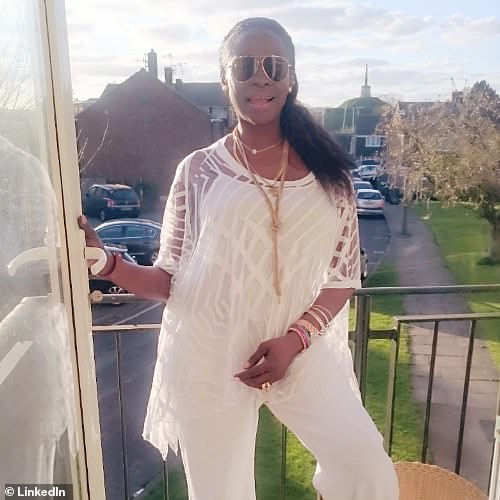
Browsing the cabinets in H Samuel, Maureen Rickards, pictured, selected an 18-carat gold ‘forever’ diamond ring to mark her 25th wedding anniversary
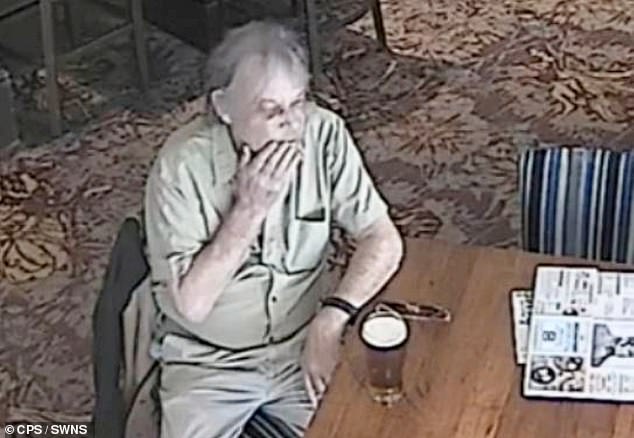
Badly beaten and frail-looking murder victim Mr Rickards in a Wetherspoons in Canterbury, Kent, shortly before his death
Rickards even paid handymen to cut the grass, placing the clippings on top of the bag and proudly videoing the garden makeover.
The killing came after a catalogue of abuse suffered by Mr Rickards.
Yesterday, having been convicted of murder at Canterbury Crown Court in March, Rickards was sentenced to life, with a minimum term of 22 years.
Mr Justice Kerr said he was sure that she had intended her husband’s death and ‘nothing less’.
And he told her: ‘I don’t know why you killed him. You have shown no remorse.’
Born in India to expat parents, Mr Rickards studied geology at Aston University before embarking on a 35-year career exploring for gold and diamonds.
And it was in 1997, while working on the Morila project, that he met his future wife. Rickards, then 23, had moved from Nigeria to Mali, apparently to run a small fashion boutique.
Two years later the couple married in Africa, after which Mr Rickards adopted her daughter, Chima, and moved the family to the UK. His wife would later be granted British citizenship.
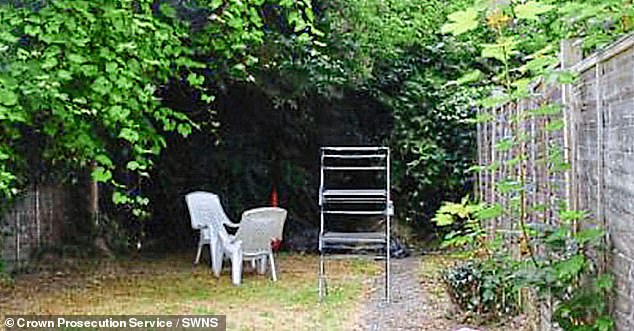
On July 11 police returned and she was initially arrested on suspicion of fraud after they found she had been using her husband’s bank card in shops in Canterbury. Later, a search of the garden found the holdall beneath the grass cuttings
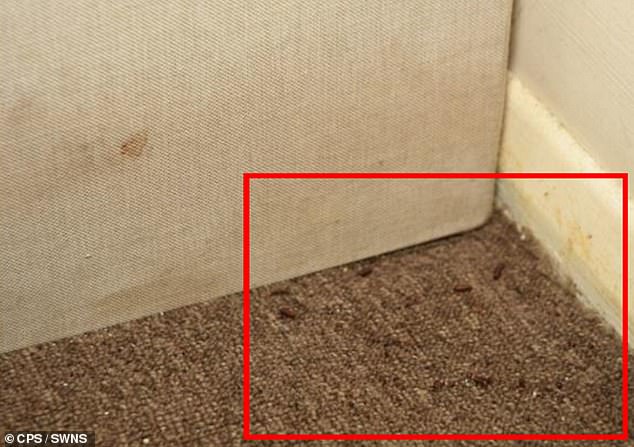
The blood-stained carpet from Maureen Rickard’s room, with ‘pupae’ or insects seen on the carpet that she tried to clean
‘Jeremy was well paid but it’s the sort of industry where you have to go to wherever the work is,’ a former work acquaintance told the Mail.
Sometimes Mr Rickards would be away for months at a time. On other occasions his wife would accompany him.
By all accounts he looked after his family well, paying for her to study fashion at a London college and for Chima to be educated privately.
But by 2016 the couple were largely living separately. She began a law degree at Canterbury’s Christ Church University and moved to a rented room in shared accommodation.
When in the UK, Mr Rickards would divide his time between his brother’s house in Middlesbrough and accommodation in Canterbury, including his wife’s room.
What led to the fatal stabbing is unclear – but it has emerged it was the culmination of a litany of abuse suffered by Mr Rickards, who was last seen alive on June 7 last year.
Indeed, in the days leading up to that date, the frail man, who had cataracts, a heart condition and a metal plate in his leg, was seen ‘battered and bruised’.
When another tenant in his wife’s house asked what had happened to his face, he replied: ‘Maureen was in a bad mood with me and with everyone.’
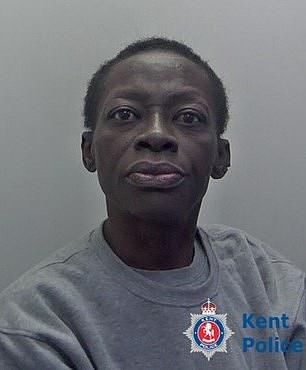
Voice and video recordings by Rickards in the month before his disappearance gave a window into their relationship
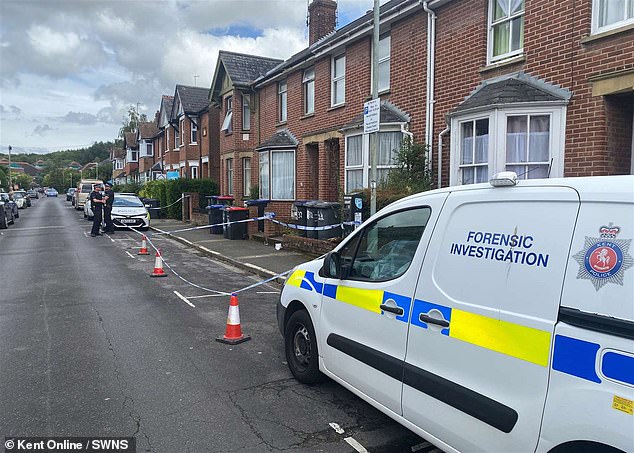
Pictured: A police cordon on the road following the murder last summer
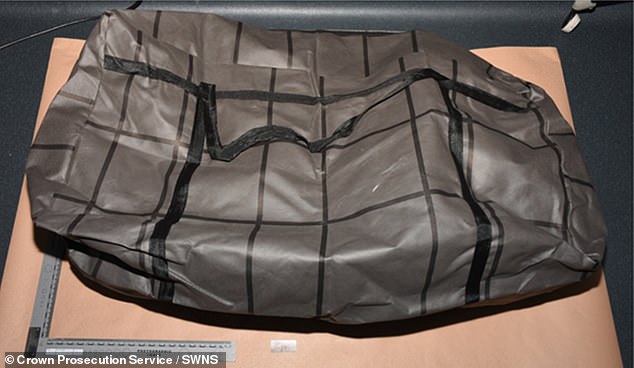
A holdall bag found at the house similar to the one Mr Rickards’ body was found in
Voice and video recordings by Rickards in the month before his disappearance gave a window into their relationship.
They show her subjecting her husband, whom she dismissively called ‘British Boy’, to verbal and physical assaults.
In one clip played to the jury, an injured Mr Rickards can be heard crying out as he was hit, with his wife warning: ‘Give me five minutes. I will kill you.’
Moments later he pleads: ‘Please stop hitting me, love. Please stop, stop hitting me.’ Rickards claimed her husband was an alcoholic and that he would injure himself when drunk.
But a bar worker at the The Thomas Ingoldsby pub in Canterbury, where Mr Rickards was a regular, said: ‘He would come in on his own, casually but smartly dressed, pay in cash, always drink the same drink, and was never any trouble. He was just lovely.’
When precisely Mr Rickards died is unclear, but the jury was told it may well have happened on June 9.
A fellow tenant in the three-storey, multi-occupancy property told police how, in the early hours of either June 8 or 9, he had heard the ‘repeated thudding noise’ of ‘something heavy’ being hauled down the stairs.
A few minutes later Daniel Matcham, 33, looked out of his first-floor window. ‘I saw her standing in the middle of the garden and she was looking up,’ he recalled. ‘I remember thinking at the time ‘God, that is f****** weird’.’
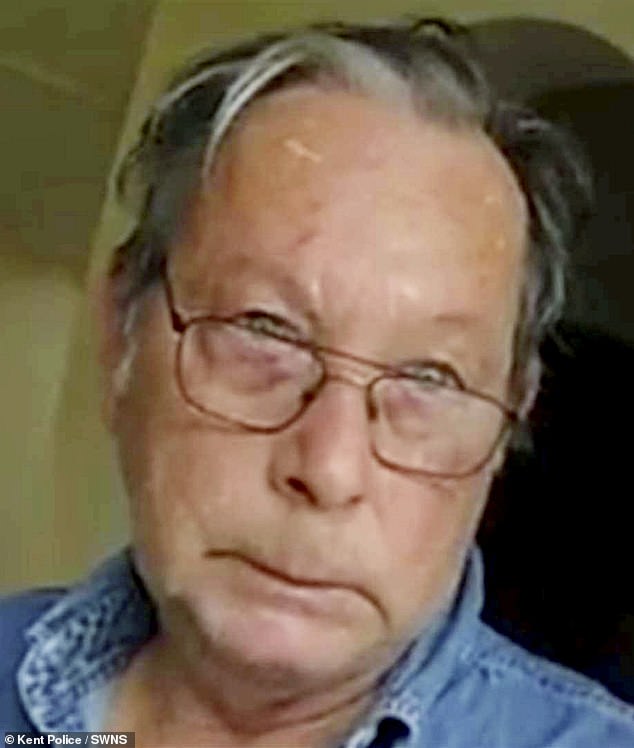
Mr Rickards (pictured) was the victim of domestic abuse at the hands of his wife in the lead-up to his murder
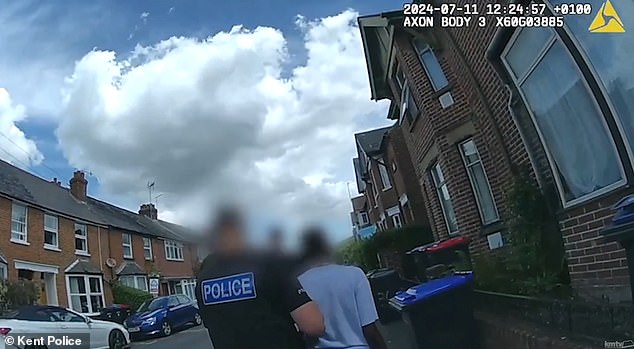
Grab from video shows Rickards being arrested on July 11 last year. She was initially arrested for fraud but this was later changed to murder
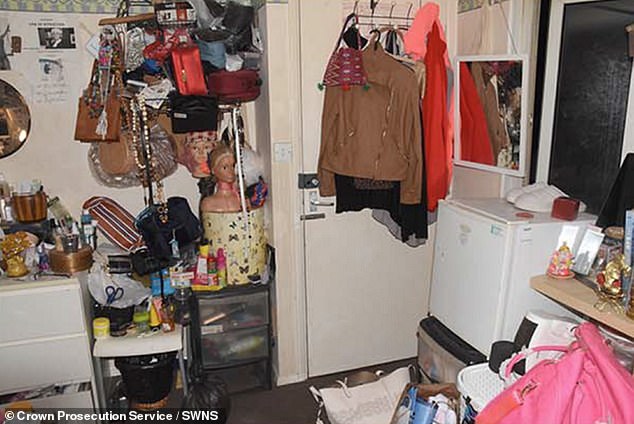
The home in Canterbury, Kent, that Maureen Rickards’ lived in
Meanwhile, Rickards was using her husband’s phone to send WhatsApp messages to Chima, suggesting he was abroad.
It was these messages, and in particular their style of writing, which prompted Chima to alert police.
On July 7 officers visited Rickards’ home. She told them she had not spoken to the geologist for weeks.
On July 11 police returned and she was initially arrested on suspicion of fraud after they found she had been using her husband’s bank card in shops in Canterbury. Later, a search of the garden found the holdall beneath the grass cuttings.
In often rambling evidence, Rickards denied being responsible for her husband’s death, describing him as ‘a gentleman, ally and confidant’.
She claimed to have last seen him on June 12 and believed he had taken his life due to ‘his job not being forthcoming’.
She later told the jury: ‘Now he is dead, living free in heaven. I’m in dire straits. My degree is gone. My freedom is gone. I’m not enjoying this ride.’
In a subsequent emotional outburst she also claimed her spouse had ‘set her up’.
‘He wanted to commit suicide and someone to answer for it,’ she said. ‘Good riddance to Jeremy. He is bad rubbish.’
From the mouth of a murderer, not a single word of remorse for the man whom she so cruelly abused in life – and then so callously deprived of dignity in death.







